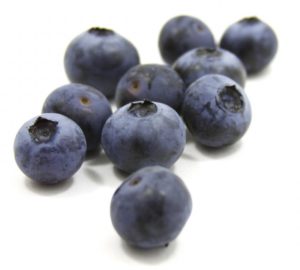Adaptogenic herbs’ popularity soared in recent years. In an Trends of 2017 Daily Meal article it seems the general public is catching on to the remedies ND’s have been touting for years. Adaptogenic herbs are meant to reduce stress and balance hormone synergy. Research steadily shows the many health benefits of adaptogens in lowering stress hormones and cortisol production. Reishi mushrooms, turmeric ashwaganda, and ginseng are some of the most popular.
Content/Sidebar
Blueberries found to reduce blood pressure and arterial stiffness
 Just one cup of blueberries per day could be the key to reducing blood pressure and arterial stiffness, both of which are associated with cardiovascular disease.
Just one cup of blueberries per day could be the key to reducing blood pressure and arterial stiffness, both of which are associated with cardiovascular disease.
“Our findings suggest that regular consumption of blueberries could potentially delay the progression of prehypertension to hypertension, therefore reducing cardiovascular disease risk,” said Sarah A. Johnson, assistant director of the Center for Advancing Exercise and Nutrition Research on Aging and postdoctoral fellow in the Department of Nutrition, Food and Exercise Sciences at Florida State University.
“Once women go through menopause, this puts them at an even greater risk for it. Our findings suggest that the addition of a single food, blueberries, to the diet may mitigate the negative cardiovascular effects that often occur as a result of menopause.”
Over an eight-week period, 48 postmenopausal women with pre- and stage-1 hypertension were randomly assigned to receive either 22 grams of freeze-dried blueberry powder – the equivalent to one cup of fresh blueberries – or 22 grams of a placebo powder.
 At the beginning of the study, the team took participants’ blood pressure and measured their arterial stiffness and select blood biomarkers.
At the beginning of the study, the team took participants’ blood pressure and measured their arterial stiffness and select blood biomarkers.
At the end of the eight weeks, participants receiving the blueberry powder on average had a 7 mmHg decrease in systolic blood pressure, which is the top number in the blood pressure reading that measures the pressure in the arteries when the heart beats.
Johnson SA, Figueroa A, Navaei N, Wong A, Kalfon R, Ormsbee LT, Feresin RG, Elam ML, Hooshmand S, Payton ME, and Arjmandi BH.
Journal of the Academy of Nutrition and Dietetics
Eating Avocados = Being A Healthier Person, Generally
Science! Avocado consumption is associated with better diet quality and nutrient intake, and lower metabolic syndrome risk in US adults. NIH Study But they also taste good. Here’s a BuzzFeed article on how awesome they are. Proof!

Do you want personal biotech? Interesting DIY Bio.
Metformin Could Be the Anti-Aging Drug That Lets You Live to 120 Years Old
Humans may be one step closer to finding the Fountain of Youth — sort of. Researchers will begin testing Metformin, a medication used to treat diabetes, as an anti-aging drug in a clinical trial next year.
When it’s used for treatment for type 2 diabetes, the drug reduces the amount of glucose produced in the liver, but researchers believe that it may also have the ability to slow down the aging process in individual cells by increasing oxygen released into each cell.
Low-carb beats low-fat in a meta-analysis of 17 clinical trials
Obesity is a growing problem across the developed world. In the United States, it affects more than 36% of adults and, in the United Kingdom, it has been referred to as the “biggest threat to women’s health”. Obesity’s epidemic prevalence as well as its serious health consequences have led to a plethora of dietary interventions with varied efficacy.
SOURCE: CDC/NCHS, National Health Examination Survey 1960–1962; and National Health and Nutrition Examination Surveys 1971–1974; 1976–1980; 1988–1994; 1999–2000, 2001–2002, 2003–2004, 2005–2006, 2007–2008, 2009–2010, and 2011–2012
In a new study published in the Journal PLOS ONE, a meta-analysis of seventeen randomized clinical trials provides insight into the relative benefits of low-carbohydrate and low-fat diets in terms of weight lost, cholesterol and the risk of atherosclerotic cardiovascular disease (ASCVD) events. The seventeen clinical trials used for meta-analysis included a total of 1,797 patients over the age of eighteen who all lacked co-morbidities other than dyslipidemia. Each trial randomly assigned patients to treatment groups and included at least eight weeks of follow-up.
For the purposes of the meta-analysis, low-carbohydrate diets had a daily intake of no more than 120 grams of carbohydrates whereas less than 30% of daily caloric intake in the low-fat diets was derived from fat.
In their conclusions the authors of the study suggest that dietary recommendations, currently favouring low-calorie, low-fat, interventions in cases of obesity, should be revisited to consider more thoroughly the benefits of low-carbohydrate diets.
(2015)
Dietary Intervention for Overweight and Obese Adults: Comparison of Low-Carb and Low-Fat Diets.


